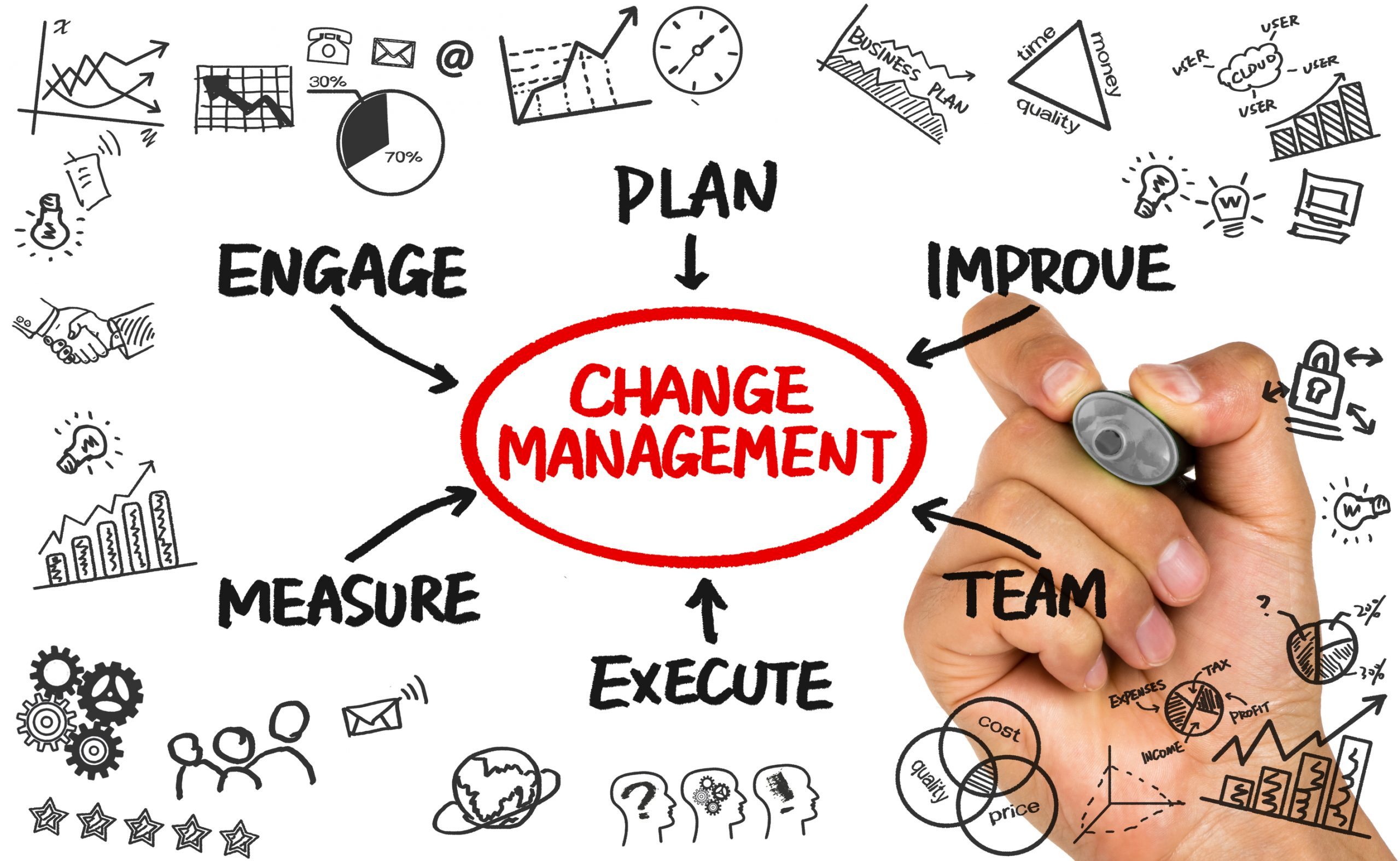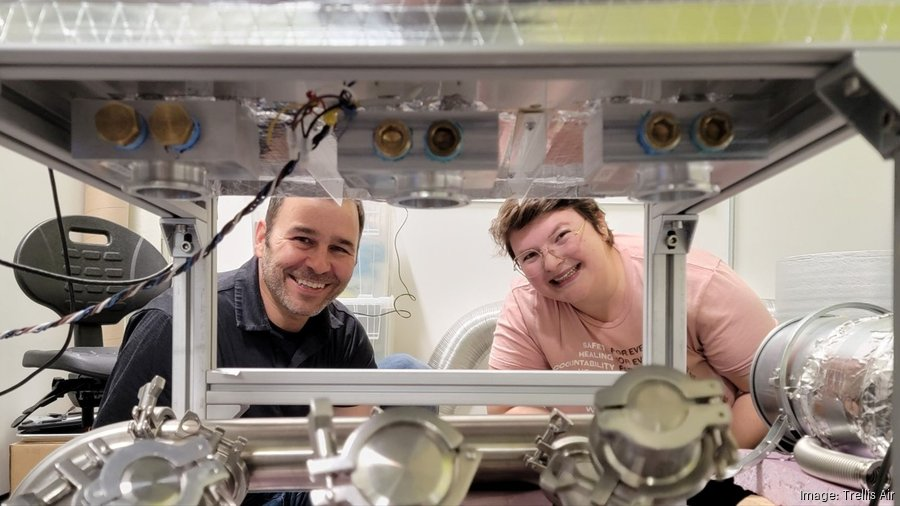Change is an undeniable and integral part of our existence, often prompting discussions on its importance in personal growth and psychological development. As we navigate our lives, embracing change can be the key to self-improvement, allowing us to adapt and thrive in various circumstances. The famed Harvard Study on Adult Development illustrates how our ability to accept transformation plays a significant role in determining our happiness and fulfillment. Rather than viewing change as a daunting challenge, we can reframe our perspective and recognize it as an opportunity for enrichment and evolving understanding. In this fast-paced world, where the only constant is change, learning to embrace it can lead to profound insights and unprecedented personal evolution.
The process of transformation is a continuous journey that affects individuals across all stages of life. This evolution, which some might refer to as adaptation or personal evolution, highlights the dynamic nature of our identities. Through engaging with new experiences and challenges, we open ourselves up to possibilities that contribute to overall well-being and enrichment. While many may instinctively shy away from transitions due to inherent fears of the unknown, initiating this journey can result in enriching growth and deeper self-awareness. Understanding the psychological impact of change, rather than resisting it, can empower us to navigate life more gracefully and meaningfully.
Embracing Change: The Key to Personal Growth
Embracing change is a fundamental aspect of personal growth. It requires us to be open to new experiences and perspectives that can lead to psychological development. According to experts like Robert Waldinger from the Harvard Study on Adult Development, resisting change often results in greater suffering. When we let go of our fear and allow ourselves to flow with the changes in life, we discover new opportunities for self-improvement and understanding of reality. This openness can significantly enhance our emotional and mental well-being, leading us on a transformative journey towards happiness.
To effectively embrace change, it’s crucial to develop a growth mindset, which encourages individuals to see challenges as opportunities for learning. The process of embracing change involves not just the acceptance of new situations, but also an active engagement in reshaping our identities and relationships. As Mahzarin Banaji points out, our implicit biases can evolve with new experiences, showing that we have the capacity to rethink our views and beliefs. This adaptability is vital for achieving personal growth, as it allows us to thrive in changing environments rather than clinging to outdated notions of ourselves.
The Role of Disillusionment in Transformation
Disillusionment often acts as a catalyst for change, prompting individuals to reevaluate their beliefs and habits. Richard Weissbourd highlights how this emotional experience can lead people in two distinct directions: towards bitterness or towards a deeper understanding of their reality. This bifurcation illustrates the importance of how we respond to negative experiences. Rather than allowing disillusionment to dictate our narrative, we have the power to choose a path of growth and renewal. By confronting our discontent, we are better equipped to foster resilience and emerge stronger from our challenges.
Moreover, the process of grappling with disillusionment can lead to significant psychological development. It encourages introspection and prompts individuals to assess their values and aspirations. When we face setbacks or crises, we may be encouraged to forge new connections or seek out fresh experiences that align with our evolving selves. This journey of self-exploration often leads to profound shifts in our identity, allowing us to construct a narrative that reflects who we truly are, rather than who we feel expected to be.
The Science Behind Change: Insights from the Harvard Study
The Harvard Study on Adult Development offers profound insights into how and why we change over time. Over the course of 80 years, researchers have tracked the lives of participants, revealing that change is a constant factor in adult psychology. This study shows that psychological shifts can occur at any age and can be influenced by life events, relationships, and individual choices. Waldinger’s findings highlight that contrary to the belief that adulthood is a stagnant phase, we continue to evolve physically and mentally throughout our lives.
This comprehensive understanding of change emphasizes the importance of adaptability in achieving a fulfilling life. As we navigate through various life stages—career developments, family responsibilities, or personal crises—we must recognize that change is not only inevitable but beneficial. Engaging with these transitions enhances our capacity for empathy, improves our relationships, and enriches our experiences. The continuous learning and evolving process enables individuals to achieve a more profound sense of happiness and contentment as they embrace the unfolding narrative of their lives.
Implicit Bias and the Spectrum of Change
Our implicit biases significantly shape how we perceive ourselves and others, affecting our capacity for change. In the podcast, Mahzarin Banaji discusses how these biases can evolve with new experiences, illustrating the fluidity of our beliefs. Recognizing that our understanding can shift leads to greater self-awareness and promotes psychological development. Whether addressing biases related to race, gender, or personal identity, acknowledging the possibility of change can empower individuals to redefine their interactions and relationships.
Additionally, confronting implicit bias forms a crucial part of self-improvement. Banaji’s research shows that even fixed beliefs can be modified over time, suggesting that we are capable of significant psychological transformation. This realization encourages a proactive stance in engaging with our biases, thereby fostering a more inclusive and understanding environment. By committing to personal growth and actively working to challenge our ingrained prejudices, we not only change ourselves but can also contribute to broader societal shifts towards empathy and acceptance.
The Complexity of Personal Identity and Change
As we navigate through life, our sense of identity often feels constant; however, this perception can be misleading. Waldinger and Weissbourd both discuss the idea of a ‘self-narrator’ that feels unchanging, despite the myriad experiences that shape our lives. This complex relationship between identity and change can result in a cognitive dissonance where individuals struggle to recognize their growth and transformation over time. Acknowledging that we are different people at various stages of life is key to understanding our personal journeys.
Identity is further complicated by the roles we occupy in different social contexts. Banaji highlights the idea that we often see ourselves through the lens of our relationships, viewing only certain aspects of our identities in specific roles—like being a parent, a friend, or a professional. This selective perception can inhibit our appreciation for the broader spectrum of change we undergo. By embracing the multifaceted nature of our identities, we allow for a more holistic understanding of ourselves and our capacity for change, thereby opening pathways for deeper personal and psychological development.
Resistance to Change: Understanding Fears and Barriers
While change can lead to personal growth, many individuals resist it due to fear and discomfort with the unknown. Banaji points out that this resistance often stems from a fear of losing stability and familiarity. This apprehension is particularly pronounced during significant transitions, such as moving to a new city, changing jobs, or ending a relationship. Understanding these fears is essential for addressing barriers to change and fostering an environment conducive to psychological development.
Encouragingly, overcoming resistance to change is possible through supportive relationships and incremental steps. As Waldinger notes, the more we lean into our discomfort and accept the inherent uncertainties of life, the more we pave the way for growth. By building resilience and surrounding ourselves with positive influences, we can transform our fears of change into motivation for self-improvement. It’s essential to challenge the notion that stability is synonymous with happiness; instead, recognizing the potential rewards of change can lead to a more fulfilling life.
Cultivating Resilience in Times of Change
Cultivating resilience is critical in navigating the inevitable changes life presents. Resilience allows individuals to adapt to adverse situations and emerge stronger from challenges. According to the insights from the Harvard Study on Adult Development, fostering resilience can significantly impact our psychological well-being, promoting healthier relationships and a more positive outlook on life. Resilience is not merely an innate trait; it can be developed through experiences that challenge us and push us out of our comfort zones.
Engaging in practices that enhance resilience, such as mindfulness, strong social connections, and self-reflection, can aid individuals in handling life’s transitions more effectively. These approaches encourage a proactive stance towards change, enabling us to view obstacles as opportunities for growth. Ultimately, by nurturing resilience, we can better embrace the changes that come our way, leading to profound levels of psychological development and self-improvement.
The Continuous Journey of Self-Improvement
The journey of self-improvement is not a destination but a continuous process that evolves as we do. Acknowledging that personal growth can happen at any stage of life is vital to understanding our potential for positive change. As Waldinger emphasizes, this journey involves recognizing and embracing the lessons learned from our experiences, both positive and negative. Rather than viewing change as an endpoint, we should see it as a crucial element of our ongoing development.
Self-improvement encompasses various domains, including emotional intelligence, interpersonal skills, and resilience. By actively seeking opportunities for growth, whether through education, therapy, or self-reflection, individuals can create a richer, more fulfilling life experience. Embracing a mindset that values growth and adaptability is essential for thriving in an ever-changing world, allowing us to transform challenges into stepping stones on our path to becoming our best selves.
The Intersection of Personal Growth and Societal Change
Personal growth often intersects with societal change, as individuals collectively shape their communities through their growth journeys. The Harvard Study on Adult Development highlights that as individuals evolve, they contribute to shifts in social norms and values. This interplay between personal and societal transformation underscores the importance of individual responsibility in promoting a healthier, more empathetic society. By cultivating personal growth, we can collectively drive societal change that aligns with our values and aspirations.
Moreover, embracing change on a personal level can inspire others to do the same, creating a ripple effect that promotes greater empathy and understanding. Mahzarin Banaji’s research suggests that when individuals confront their biases and work towards change, they not only benefit their own psychological development but also foster a culture of inclusivity and acceptance within their communities. By recognizing the interconnectedness of our journeys, we can harness the power of collective growth to influence positive societal change for generations to come.
Frequently Asked Questions
How can embracing change lead to personal growth?
Embracing change is a crucial component of personal growth. When we accept change, we pave the way for psychological development and self-improvement. Adapting to new circumstances allows us to acquire new skills and perspectives, ultimately enhancing our well-being and happiness.
What role does the Harvard Study on Adult Development play in understanding change?
The Harvard Study on Adult Development provides significant insight into how individuals can change over time. It emphasizes that adult development is not static; rather, it showcases the capacity for continuous psychological change and improvement throughout life, regardless of one’s circumstances.
In what ways can disillusionment influence the process of change?
Disillusionment can serve as a catalyst for change, prompting individuals to reassess their beliefs and goals. While some may react negatively and withdraw, others can leverage disillusionment to gain a deeper understanding of reality, fostering resilience and psychological growth.
Why do some people resist change while others embrace it?
Resistance to change often stems from a desire for stability and fear of the unknown, which can be rooted in one’s temperament. Individuals who are more open to new experiences tend to embrace change readily, while those who prioritize tradition may find it challenging to adapt.
How does change affect relationships and social dynamics?
Change can significantly impact relationships, as personal growth often leads individuals to seek connections that reflect their evolving values. Healthy change can lead to stronger, more fulfilling relationships, while negative changes, such as cynicism or withdrawal, can cause strain and distance between individuals.
What strategies can promote a healthy acceptance of change in our lives?
To promote healthy acceptance of change, individuals can practice mindfulness, setting realistic goals, and maintaining a growth mindset. Engaging in personal development activities and surrounding oneself with supportive networks can also facilitate a smoother transition during periods of change.
How does change affect implicit biases according to current research?
Research, including findings from the Harvard Study on Adult Development, indicates that implicit biases can change over time, shaped by new experiences and societal shifts. This underscores the importance of being open to change and actively working to address and modify one’s biases.
What can we learn about change from the experiences shared in the Harvard Thinking podcast?
The Harvard Thinking podcast reveals that change is an inevitable part of life that can lead to growth and improvement if embraced positively. It emphasizes the transformative potential of change and advocates for openness to new experiences as a way to enhance personal and collective well-being.
Can change be both positive and negative?
Yes, change can be both positive and negative. While positive change fosters growth and fulfillment, negative change, such as trauma or disillusionment, can lead to withdrawal and cynicism. It’s essential to navigate these changes carefully to promote healthy psychological development.
How do cultural views on change influence individual attitudes towards self-improvement?
Cultural perspectives on change greatly influence individual attitudes. Cultures that value stability may lead individuals to resist self-improvement, while those that celebrate innovation and adaptability encourage a more proactive approach to personal growth and embracing change.
| Key Points | Expert Insight |
|---|---|
| Change is inevitable and affects everyone. | “The more we resist change, the more we suffer.” – Robert Waldinger |
| People often change subconsciously or due to life experiences. | “People can respond to disillusionment by thriving or becoming bitter.” – Richard Weissbourd |
| Individual willingness to change varies widely. | “Some people are temperamentally more inclined to resist change.” – Mahzarin Banaji |
| There are positive and negative changes in response to life events. | “Not all change is beneficial; trauma can lead to harmful changes.” – Samantha Laine Perfas |
| Awareness of change often increases with age and experience. | “Our perception of life’s finiteness changes as we age.” – Robert Waldinger |
Summary
Change is a fundamental aspect of human existence, essential for growth and adaptation. As highlighted in discussions by experts from Harvard, ignoring or resisting change leads to greater suffering. Embracing change, whether it be through conscious efforts or gradual shifts as life unfolds, can lead to a deeper understanding of ourselves and a more fulfilling existence. Recognizing the importance of being open to change, despite the natural fear it may evoke, can empower individuals to navigate life’s uncertainties and opportunities for transformation.



